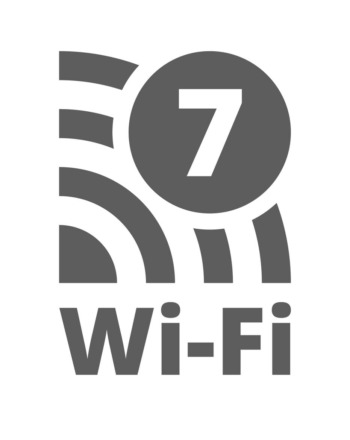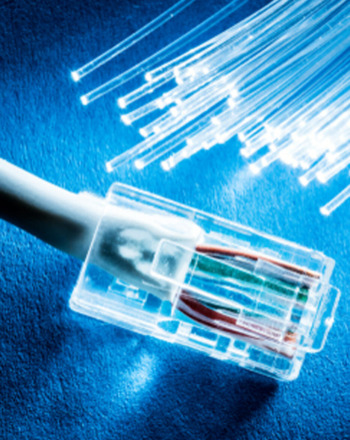In today's fast-paced business environment, internet connectivity is essential for businesses of all sizes. This is where Business Wi-Fi comes in - it is a wireless network designed specifically for the needs of businesses, providing reliable, high-speed internet connectivity for employees, devices, and customers.
Business Wi-Fi is vital for modern businesses, as it enables them to stay connected, communicate effectively, and access the information they need to operate efficiently. With the increasing importance of remote work and online collaboration, Business Wi-Fi has become a crucial tool for companies looking to stay ahead in today's digital economy.
Business Wi-Fi Infrastructure
Business Wi-Fi infrastructure refers to the various components that make up a business's wireless network. These components include:
Local Area Networks (LAN): A LAN is a network that connects devices within a limited area, such as an office building or campus. It enables devices to communicate with each other and share resources like printers and files.
Wide Area Networks (WAN): A WAN is a network that connects devices over a larger geographical area, such as different offices or locations. It enables devices to communicate with each other and share resources over a larger distance.
Leased Lines: A leased line is a dedicated connection between two points, often used by businesses to connect their offices or data centers. It provides a reliable, high-speed connection that is not affected by other users on the network.
Data Centre Access: Data centers are facilities that house servers, storage devices, and other IT equipment. Business Wi-Fi infrastructure may include access to data centers, enabling businesses to store and manage their data securely.
Dark Fibre: Dark fibre is unused optical fiber that businesses can lease to create their own high-speed network. It enables businesses to have complete control over their network and customize it to their specific needs.
Structured cabling: Structured cabling refers to the cabling infrastructure that supports a business's network. It is designed to be organized and standardized, making it easier to manage and maintain.
In the next section, we will discuss the technologies that make Business Wi-Fi possible.
Business Wi-Fi Technology
To provide reliable, high-speed connectivity, Business Wi-Fi relies on a range of technologies, including:
Wi-Fi Standards: Wi-Fi standards refer to the set of protocols that define wireless networking. The most common Wi-Fi standards used in Business Wi-Fi are 802.11ac and 802.11ax (also known as Wi-Fi 6).
Ethernet: Ethernet is a wired networking technology that is used in Business Wi-Fi to provide a high-speed, reliable connection between devices.
SDWAN: Software-Defined Wide Area Networking (SDWAN) is a technology that enables businesses to connect their WANs (Wide Area Networks) over multiple connections, including broadband internet, 4G/5G, and MPLS (Multi-Protocol Label Switching). It provides a more flexible and cost-effective solution than traditional WAN technologies.
MPLS: Multiprotocol Label Switching (MPLS) is a protocol used to route traffic between various locations in a WAN. It provides a high level of reliability and security, making it a popular choice for businesses.
Together, these technologies enable businesses to create a wireless network that is fast, reliable, and secure, meeting the demands of modern business environments.
In the next section, we will discuss the differences between Business Wi-Fi and Home Wi-Fi.
Business Wi-Fi vs. Home Wi-Fi
While both Business Wi-Fi and Home Wi-Fi provide wireless internet connectivity, there are several key differences between the two. These include:
Capacity: Business Wi-Fi is designed to handle the higher capacity demands of businesses, which typically have more devices and users connected to the network than a typical home. Business Wi-Fi infrastructure is also designed to be more scalable, allowing businesses to easily expand their network as their needs grow.
Reliability: Business Wi-Fi is designed to provide an elevated level of reliability, with features like failover and redundancy built in. This ensures that the network remains operational even in the event of a failure.
Security: Business Wi-Fi is designed to provide a higher level of security than Home Wi-Fi, with features like firewalls, VPNs (Virtual Private Network), and encryption built in. This is essential for protecting sensitive business data and ensuring compliance with regulations like GDPR.
Support: Business Wi-Fi is typically supported by dedicated IT staff or service providers who can quickly troubleshoot any issues that arise. Home Wi-Fi, on the other hand, is typically supported by the homeowner or a consumer-focused service provider.
Overall, Business Wi-Fi is designed to meet the unique needs of businesses, providing a fast, reliable, and secure wireless network that supports the demands of modern business environments.
Choosing the Right Business Wi-Fi Provider
Choosing the right Business Wi-Fi provider is essential for ensuring that your business has the connectivity it needs to thrive. Some factors to consider when choosing a provider include
Reliability: Look for a provider with a proven track record of reliability, with features like failover and redundancy built in.
Security: Ensure that the provider offers robust security features, like firewalls, VPNs, and encryption.
Support: Choose a provider with a dedicated support team that can quickly troubleshoot any issues that arise.
Scalability: Ensure that the provider's infrastructure is designed to be scalable, so that you can easily expand your network as your business grows.
Cost: Consider the provider's pricing structure and ensure that it is affordable and transparent.
By choosing the right internet provider for your small business, you can ensure that you have the reliable and fast connectivity you need to run your operations smoothly. Consider the factors above when choosing an internet provider and take the time to research and compare different providers to find the best fit for your business.
Advantages of Business Wi-Fi
Business Wi-Fi offers several advantages for modern businesses, including:
Enhanced productivity: Business Wi-Fi enables employees to work remotely and access the internet from anywhere within the office premises, which can significantly improve productivity. Employees can use their laptops, tablets, and smartphones to access company resources, collaborate with colleagues, and communicate with customers.
Improved customer experience: With Business Wi-Fi, businesses can offer free Wi-Fi access to customers, improving their overall experience. Customers can stay connected while they shop, dine, or wait for appointments, and businesses can use this opportunity to collect customer data and feedback.
Scalability: Business Wi-Fi is highly scalable, which means that businesses can easily add more devices and users as their needs grow. This allows businesses to expand without worrying about network capacity or performance issues.
In summary, Business Wi-Fi can provide enhanced productivity, improved customer experience, and scalability, which are essential for modern businesses to thrive. By adopting Business Wi-Fi, businesses can gain a competitive advantage and improve their bottom line.
How Businesses Use the Internet
In addition to providing essential connectivity, the internet also offers a wealth of tools and services that businesses can use to improve their operations and grow their customer base. Some of the most common ways that businesses use the internet include:
Communication: The internet provides businesses with a range of communication tools, from email and instant messaging to video conferencing and VoIP (Voice Over Internet Protocols). These tools enable businesses to stay in touch with clients, colleagues, and partners around the world, improving collaboration and streamlining communication.
E-commerce: With the rise of online shopping, e-commerce has become an essential tool for businesses of all sizes. By setting up an online store, businesses can reach a global audience, expand their customer base, and increase revenue.
Cloud computing: Cloud computing has revolutionized the way that businesses store and manage their data. By using cloud-based services, businesses can store and access their data from anywhere in the world, improving flexibility and reducing costs.
Social media: Social media platforms like Facebook, Twitter, and LinkedIn provide businesses with a powerful tool for marketing and customer engagement. By creating a strong social media presence, businesses can connect with their audience, build brand awareness, and drive sales.
By leveraging the power of the internet and the latest technologies, businesses can stay ahead of the competition, improve efficiency, and grow their bottom line. Whether it is through communication tools, e-commerce, cloud computing, or social media, the internet provides businesses with a range of powerful tools that can help them achieve their goals.
Conclusion
In conclusion, Business Wi-Fi is a crucial tool for modern businesses, providing reliable, high-speed internet connectivity that supports the demands of today's digital economy. By choosing the right Business Wi-Fi provider and infrastructure, businesses can ensure that they have the connectivity they need to stay ahead in today's competitive marketplace. With technologies like Wi-Fi standards, Ethernet, SDWAN, MPLS, and others, businesses can create a wireless network that is fast, reliable, and secure, meeting the unique needs of their organization.


















































































































